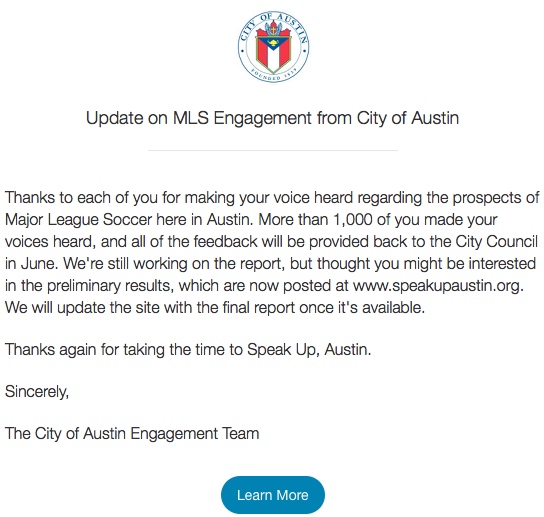Sometimes government agencies want “the next big thing” to solve their public involvement challenges. It’s understandable: leadership pushes hard to engage the public, and historically efforts have been disappointing. This may lead us into thinking that we need a shiny new piece of technology, an off-the-shelf solution that acts as a community engagement magic wand. However, this is a bit backwards – the real solution comes from having a better community engagement process for the work we are already doing. You just need the right community engagement software to help you implement that process. You already have the pieces, you just need to bring them together.
Common Types of Outreach
- Public Hearings
- Workshops
- Neighborhood Meetings
- Charettes
- Online Surveys
- Online Forums
- Emails
- Social Media
- Forums
- Farmers Markets
- Canvassing
- Text Messaging
For many departments, any change in policy or capital expenditure involves some sort of process to engage the public in decision making. From providing an email address, or pulling together a meeting, these opportunities for engagement often become exceedingly routine.
We’ve found that agencies are likely already doing a lot of outreach to the public – it is just not being documented well. We’ve learned that great public engagement involves embracing what you’re already doing – from ad-hoc meetings about road resurfacing to the comprehensive plan. Adding new tools is fruitless if there’s no way to understand the entire landscape of engagement (is it better than what we’ve done before?) or have the ability to re-engage people who have shown interest at other points in a process (allowing you to close the loop.)
In short, the car already exists, we’re just not quite sure where it’s been and where it’s going.
Understanding this context makes you more able to create a better community engagement process that meets your agency’s specific needs.
What’s your foundation?
One of our existing agency partners recently said to me: “I know there were more people at the meeting, but they didn’t speak up and I wasn’t sure what they were interested in.” For a variety of reasons we can ignore the engagement we’re already doing in favor of new tactics that might engage the same people. This is difficult to know because few of these processes are tracked.
You may have found yourself asking questions like:
How did participants in public workshops hear about the workshops?
Are the same people coming, or are we reaching new people?
Does our knowledge of frequent participants cloud our ability to see new people?
Change is hard – Community engagement software should mold to your needs
Technology can be daunting and feel like unnecessary change to employees. Our goal is to meet customers where they are, and to use technology to simplify their current work. But what is working? Without a common way to understand the overall context of public involvement, staff has difficulty judging any tool or tactic that is implemented. PublicInput.com tries to be relatively neutral on the tactics used to reach participants, but it provides a framework to evaluate and naturally evolve your processes, not abruptly try something brand new. As a true partner, we innovate our software to the needs of government agencies, not to the latest fads.
The #1 way to improve community engagement, easily: Close the feedback loop
How are you letting residents know that they have been heard? Closing the feedback loop doesn’t have to mean creating a full-on report. It can be something as simple as a project update via email or text message, or embedding results from a survey on your project website. Below is a simple email that Austin, Texas sent to residents who participated in a community needs assessment in regards to a potential MLS team coming to town.

Not sure where to start? We’re happy to have a quick conversation about your current efforts, and how you might be able to better capture that data.
Learn more about a better community engagement process and closing the feedback loop:
[gravityform id=”3″ title=”true” description=”true”]



